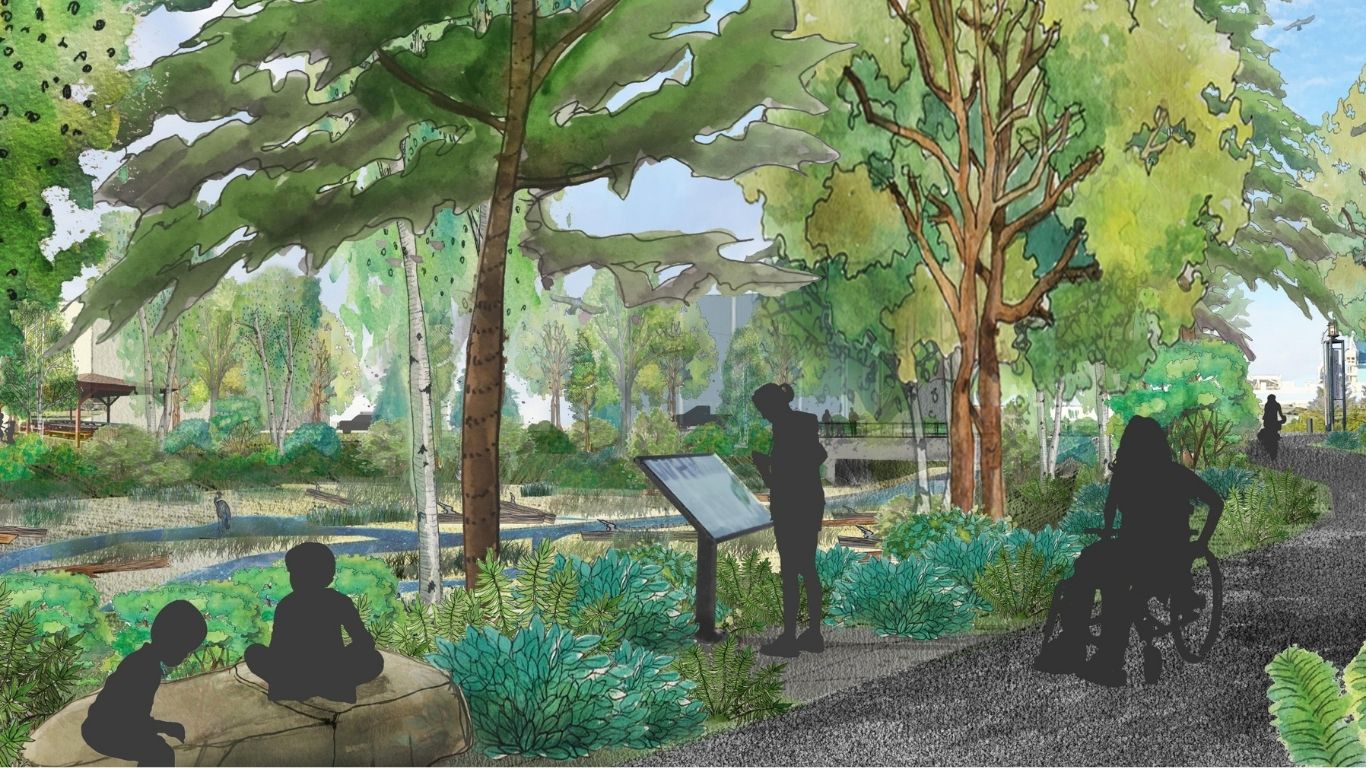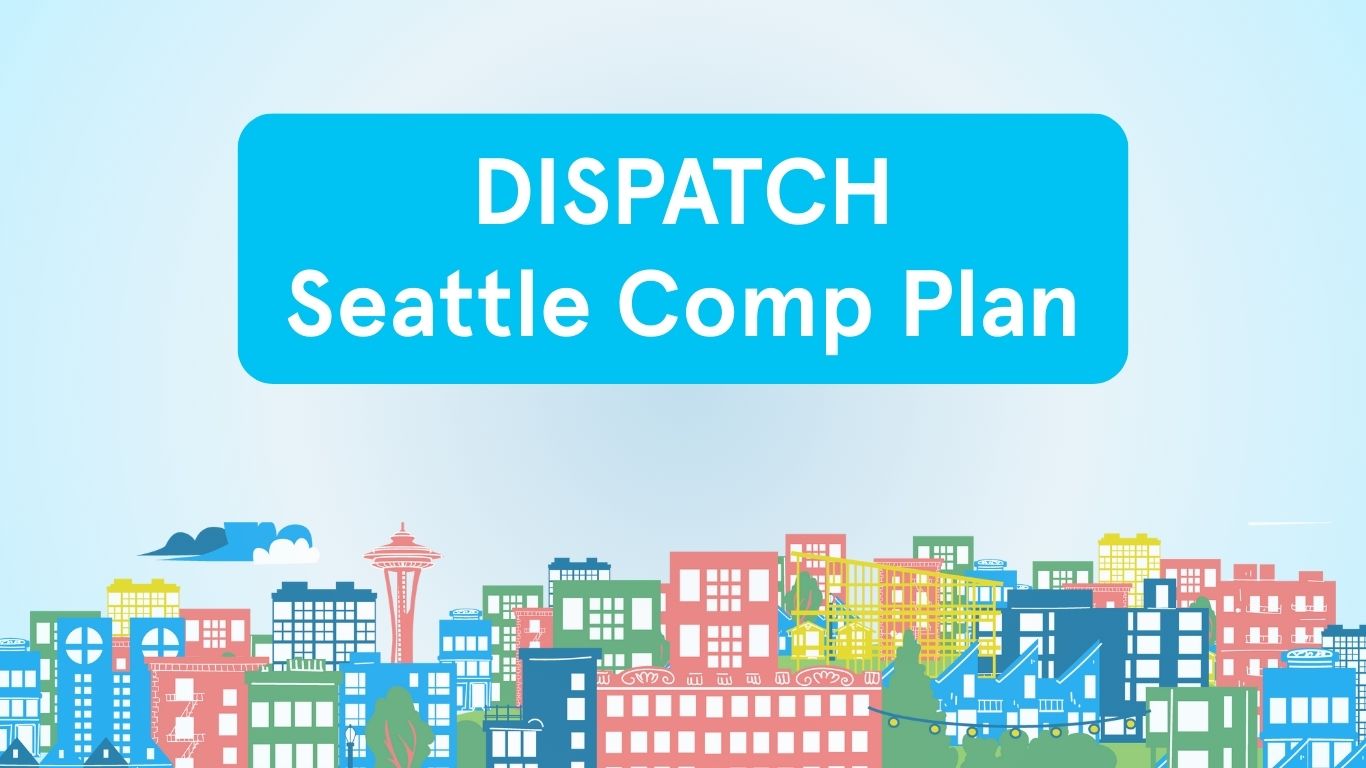Land Use is for Everyone — The Multigenerational Farmhouse
Introducing Our New Interview Series
The perk of my job as Futurewise’s State Organizer is getting to work with folks from a wide variety of diverse backgrounds– rural, urban, and everything in between. It’s a constant reminder that where we live shapes every part of our lives. It molds how we get to work, what our kids do for fun, even what we believe in. Land use policies have determined all of these worlds. Working with folks who walk five minutes to their grocery stores as well as folks who grow their own food on their farms has continually reminded me of the different ways that we live and navigate our communities.
But I’ve also seen how challenging it can be to look beyond your own community. A lot of my friends in Seattle and the suburbs haven’t set foot on an operational farm before, and a lot of my family from rural areas are anxious about even visiting a city. It can be one thing to rationally know why farms are important for cities or why building a better public transit system will help protect farms, but it’s another thing to have that lived experience or hear directly from someone who does about why they’re so critical.
So I want to share what I’ve heard from the people I’ve worked with. I want to get back to the roots of why Futurewise does what we do– why we work so hard to protect our farms and habitat, and build healthier, more equitable cities, and everything in between.
Over the coming months I’m going to be sharing interviews I’ve done with folks living in all sorts of places. I’ve been interviewing friends, family and colleagues, and I’m here to bring their fascinating stories and experiences directly to you!
I went into this thinking I would interview individual people to represent different areas to live, like the suburbs, or a medium-sized city, but I realized that people move around a LOT and are shaped by all the places they live (did you know the average American moves around 11 times in their lifetime? That’s according to data from the Census bureau from 2007). So these interviews are a mash-up of all these experiences, packaged together to remind us why we do what we do.
I’ll be releasing a new interview each month for the next few months, starting with this first one. I’ve got cute animal pictures, hilarious anecdotes, and heart-wrenching stories all in store for you.

First Interview– The Multigenerational Farmhouse
When I came up with this idea and was thinking of who to interview, my family was the obvious choice. My family moved from Tucson, Arizona to an apple farm in Oregon when I was a small kid. Moving to Seattle three years ago was a big deal for me and my family; I was moving further away than my sisters, and my family’s always been drawn to rural areas over dense cities. But even with my farm background, I’ve come to love how easy it is to get around via public transit or on foot, and the abundant opportunities that cities provide. I’ve also seen how complimentary rural and urban places are, and this was a big part of why I was drawn to Futurewise. But I wanted to hear from my parents, who do not self-identify as urbanists to see how they viewed their built world.
Right now, three generations of my family are living on the apple farm that I grew up on, and dance between their rural and urban worlds. They have Midwestern and Southwestern urban roots, but now sell applesauce at local farmers markets and grocery stores when they’re not working their day jobs. My parents currently live in Cheshire, Oregon, an unincorporated area in Lane County with a population of 329. They both have day jobs in Eugene, roughly a 35 minute drive away.
I interviewed my parents separately to hear their individual points of view, but I’ve combined their answers below. Grammatical edits have been made.
Tell me about where you live, to help our readers understand where you’re coming from.
Dad: Cheshire is basically a pitstop on the way to Eugene. Post office, 40 mph sign and no stoplight. Our property is surrounded by several different farms and a winery, and we have 15 acres of apple orchards, pastures, and wooded forest.
It’s a beautiful area in the Coast Range, about an hour away from the coast. And we have a lot of bees. [Proceeded to pause the interview to catch and release a bee from the house.]
Mom: We have a small 15 acre farm. It’s a small commune [laughs], we’ve been here for 19 years. My middle daughter and her husband rent out the bottom level of our split-level, and my 90 year old dad lives on the property as well. We have about 7 acres of apple trees, about 100, give or take 10. Our primary crop is apples, which we process into applesauce, and we have some garden veggies and herd animals. We have a flock of chickens, and collect the eggs and sell them at markets. We have some rescue horses, goats, and sheep. We get the wool from the sheep, and they are great weed control too. Our horses provide manure for the farm. We also don’t use any sprays, and try to keep it sustainable.
You mentioned other generations of our family living there, why is that?
Dad: Grandpa came with us from Arizona and has been with us since. He wanted to be with the family. My daughter and her husband were paying an exorbitant amount of rent in Corvallis and asked if they could move to the lower half of the farmhouse. We have a pretty big square footage, and when the kids left, the downstairs just became storage anyway. It makes it easier for them to save up for a house after she graduates [she just got her Ph.D in microbiology], and we wanted to help them out. Plus, my daughter is a huge help on the farm.
What do you like most about your community?
Mom: My favorite thing about it is that I can share it with my family. When the kids were small they learned how to run a business and farmers market and interact with people they don’t know. Now as adults, if there’s something they’re interested in, like pruning, manufacturing, gardening, or if they just need a place to come to escape for a little while, it offers all of that.
What’s something that you love that most people wouldn’t expect?
Mom: Why would I want to tell them that? [laughs] It’s beautiful out here, it’s peaceful, you’re in the middle of nature, it’s very grounding. It balances out your soul.
Tell me a story about where you live that could only happen there.
Mom: Icemageddon. [She’s referencing a winter storm in 2013] We didn’t have power, and didn’t have transportation because the roads were iced over. It was a little nerve wracking because you guys were still kids and we were isolated. No one was going to be able to get to us and help us if we needed it. When there’s an ice storm you lose power, phone service, and well water, but hopefully you have a generator. The only heat you’ll have is from the wood stove, so you need to be careful with what you’re eating and drinking.
It’s scary, because what if someone gets hurt? You’d need a helicopter, but we don’t have a landing pad, and you can’t call them anyways. Suddenly you’re on the moon. You’re just that isolated. The nearest town is a million miles away because there’s ice or fallen trees. It’s a little scary, but I love it. You can prove to yourself that you can be self-sufficient, instead of helpless. You can figure things out for yourself, especially if you plan ahead.
And also the wildfires. They can literally start anywhere and spread fast so you need to be ready to move out of here. On bad years, we have a bag packed and a plan of which animals we’re going to try to save with the time we have. We get kennels lined up and trailers ready to go; it happens quickly and can go anytime, day or night. I’ve met so many people who have lost their homes in those fires. My plan if the house burned down is that we would rebuild and live in an RV for a year. I did just up the insurance on the house…
What would you want to preserve about your community?
Dad: The real estate cost; we lucked out with this place. I don’t think there’s a lot of people that had our single income that would be able to afford this now.
Mom: The trees and nature. The wildlife is already getting squeezed by all the new buildings out here, and for them to lose the trees and their environment would be horrible. Rural areas are really important to preserve. We need them for producing food and supporting wildlife. It’s also important to have greenspaces that are natural for the people to come and visit. It’s crucial. Having these trees and greenspaces is just a small part of combatting our climate change.


